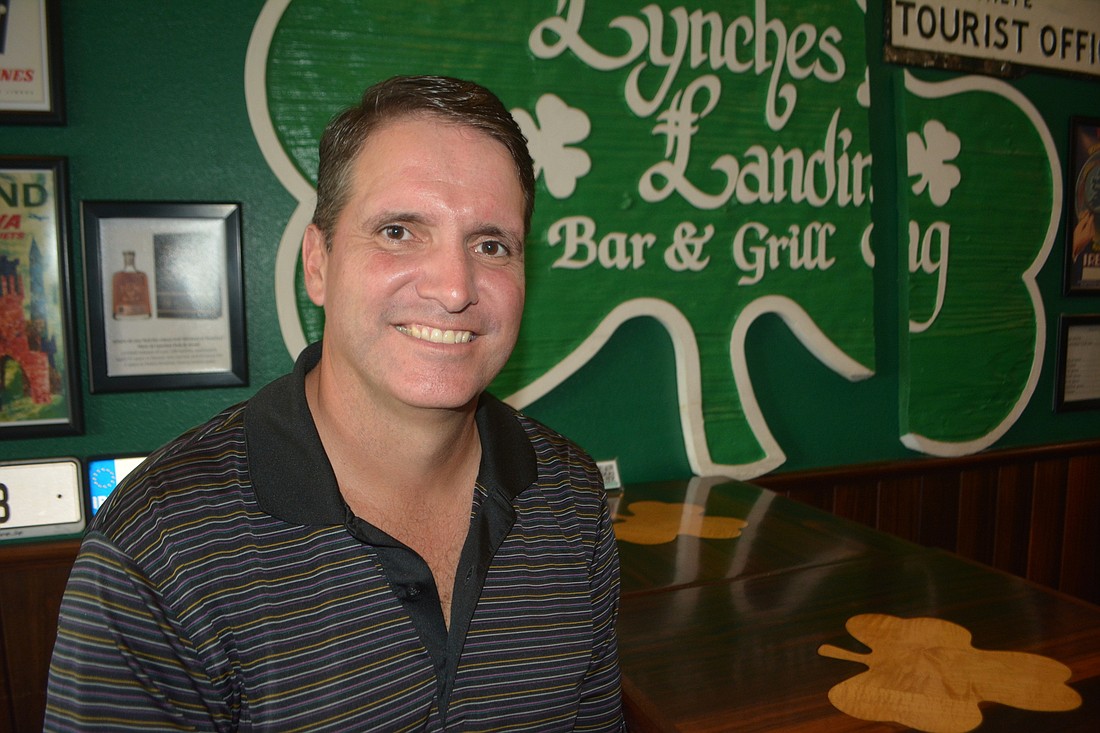- February 19, 2026
-
-
Loading

Loading

The City Commission didn’t see things his way in October, but Chris Goglia is bracing for a series of unintended consequences if officials don’t revise their plans to legalize short-term rentals for properties where a host remains on site.
Last month, the commission voted unanimously to direct staff to prepare an ordinance that would permit “hosted rentals,” or homesharing, in residentially zoned areas. The goal of the legislation, city leaders said, was to allow homeowners to rent a portion of their properties on sites such as Airbnb. A majority of the commission said they did not feel such rental activity would cause problems for neighboring properties, so they did not instruct staff to include any major regulatory requirements in the ordinance.
At the October meeting, Goglia said he wasn’t opposed to legalizing homesharing, but he encouraged the city to be rigorous in examining for any loopholes. Since then, the president of the St. Armands Residents Association has grown stronger in his convictions, and his list of concerns has expanded.
This week, Goglia struck on a new point of concern: If homeowners decided to rent out a portion of the property on which they claim a homestead exemption, the rental activity would nullify their right to a portion of that exemption. If home-sharers did not realize the effect the rentals would have on their homestead exemption, they could eventually be required to pay back taxes and fines for homestead fraud.
Homesteaded home-sharers would be forced to navigate the tax provisions that come with renting out their primary residence, but Goglia said non-homesteaded property owners would not have to deal with such challenges. That’s to the benefit of a hypothetical investor seeking to turn a home into a commercial rental property, Goglia argued.
“[Commissioners] say they want homesharing to help people struggling to make ends meet,” Goglia said. “But based on my conversation with the county property appraiser’s office, it’s actually going to hurt the people they say they want to help, and it’s going to help absentee landlords.”
During the October commission meeting, a majority of the board indicated it was not concerned about the prospect of problems arising in the future when officials have not presently identified an propblem with homesharing that is occurring in conflict with city regulations.
“To act like we’ve got to be scared of this eventuality that the neighborhood goes away is just crazy,” Commissioner Hagen Brody said. “The proof is in the pudding. We have dozens of these operating right now in the city of Sarasota that don’t pose an issue.”
Still, Goglia encouraged the city to establish regulations on who could serve as a host, how many people could stay as guests and the duration of visits. He’s not alone — at a Saturday meeting of the Coalition of City Neighborhood Associations, representatives for resident groups throughout the city questioned the effects the homesharing legislation could have on their communities.
“Homesharing can be a good thing in my neighborhood and several neighborhoods in north Sarasota, but it needs the same constraints, or we will end up with predatory landlords — and we already struggle with that.,“ said Richard Grant, president of the Bayou Oaks Neighborhood Association.
Brian Loughrey, chief deputy with the Sarasota County Property Appraiser, affirmed that homeowners could not claim a homestead exemption on any portion of their property that they use for more than 30 days of rental activity per year. That doesn't mean that a home-sharer would lose their homestead exemption entirely, but it could mean they lose 25%, depending on the amount of space being rented.
Loughrey said the annual notices the property appraiser mails out notifies homeowners that renting their property could affect their homestead status. Still, he could not say how well versed property owners are in the legal complexities of homesharing.
“Do people [actually] know all of these statutes?” Loughrey said. “I would say, no, they’re probably not aware.”
Goglia and other residents concerned about homesharing will have the opportunity to make their case to the commission on Monday, Nov. 15, when the board revisits its conversation at the request of Commissioner Jen Ahearn-Koch.